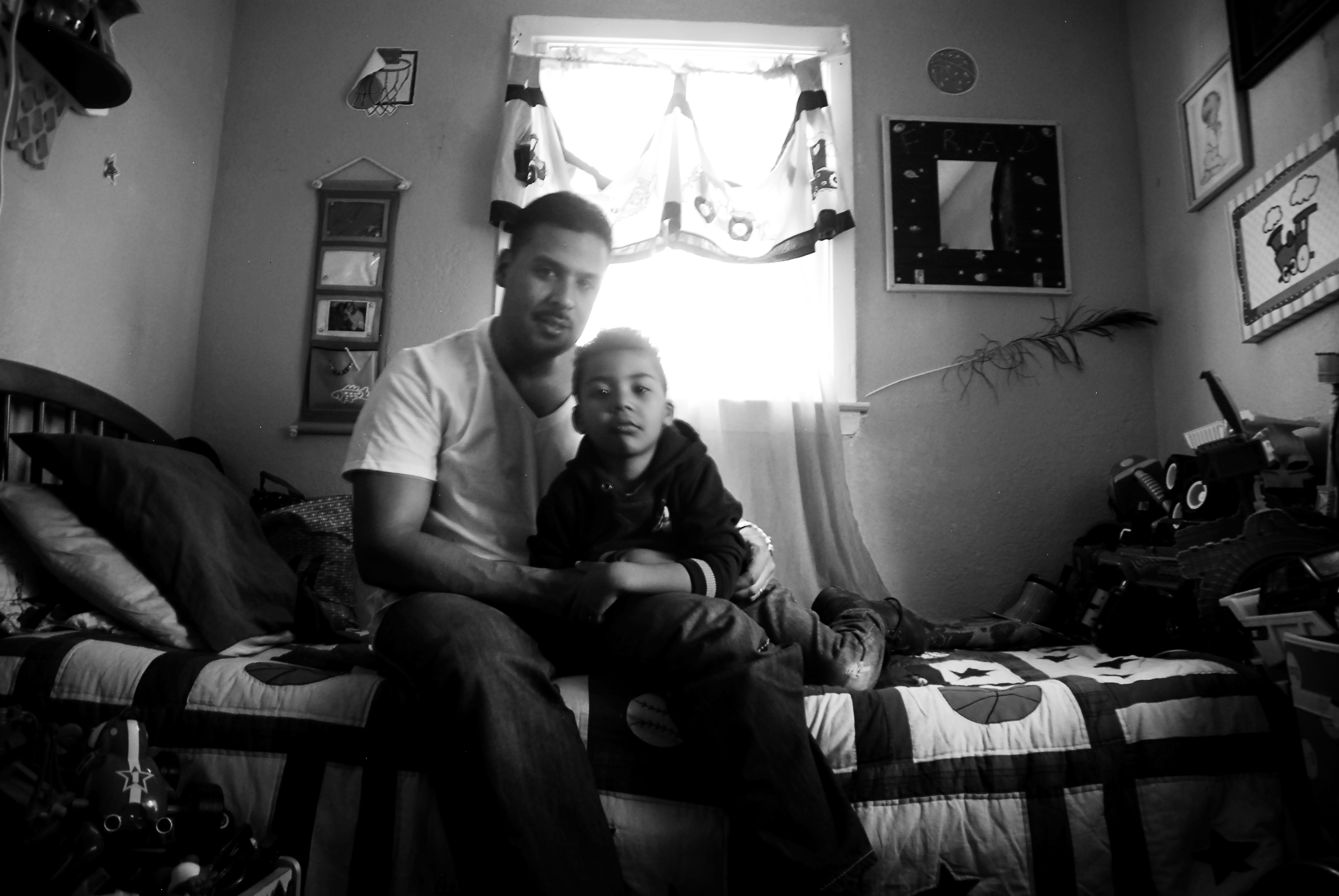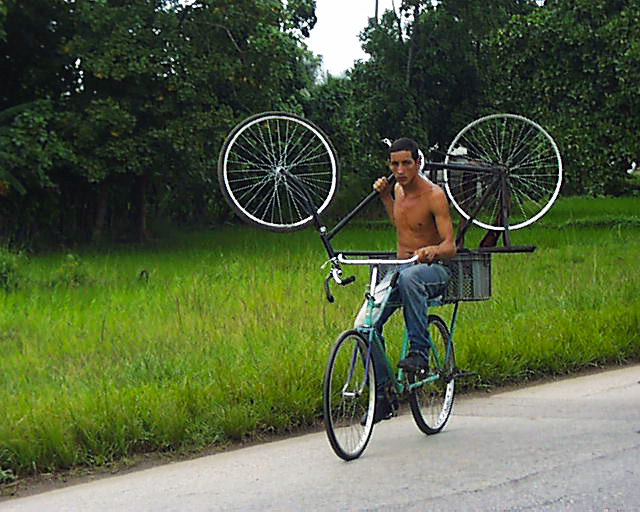Now that Barack Obama has won the presidency, and the Democrats have broadened their majorities in Congress, the picture looks a little less bleak for the country's poor and near poor families.
In policies ranging from taxes to health care, from housing to job creation, Obamanomics will likely provide some welcome relief from the status quo of the last eight years, during which the ranks of low-income households grew. In 2000, 29.2 percent of the population, or 81 million Americans, lived on household incomes of less than twice the poverty line. In 2007, 30.5 percent of the country, or 91 million Americans, fell into this bottom category of poor and near poor households.
In our book The Missing Class, Katherine Newman and I looked at the situation of near poor families at the end of last decade and the beginning of this decade. Rates of poverty and near poverty were steadily falling from their peaks in the early 1990s. Americas economy was roaring. But as we described in our book, even in those boom years near poor families were struggling mightily to find quality health care, housing, and education for their children.
Now that another downturn is upon us, the economic fortunes of the less well-off look far worse. And having just approved a massive infusion of government money to prop up the country's floundering banks, the federal government — even with a progressive president at the helm — will find its options even more limited than is usually the case during recession times, as half-a-trillion-dollar budget deficits feed interest rate rises and worsen the market malaise.
Still, if government does not act during a crisis, things could get much worse, especially for lower-income communities typically hit hardest by mass layoffs and shrinking paychecks. The Obama administration will have to step in vigorously to jumpstart sectors of the economy and reform markets so that a quick and thorough recovery — one not just restricted to Wall Street — will take place. Here are some priorities that, regardless of the situation with the deficit, will need to take place:
A "Green Deal." This may seem counterintuitive: how can we afford the "luxury" of tree-hugging during a recession? But investing in green industry is one of today's best growth strategies, as we can see abroad in places like Germany, which has become the world leader in solar power thanks to government-established incentives for private business. Green technology is also one of the few sectors where we can envision a substantial expansion of well-paying jobs that employ our poor and near poor workers. (Here's a contrarian view, but note that U.S. government support was crucial for several important industries that became private-sector engines of growth, from the telegraph to computing.)
The Internet boom showed us that sensible government investment can pay off huge dividends in new technology that creates jobs; a New Deal-style approach to green technology could be even more successful, given that it is not as wholly dependent on highly educated knowledge workers. From erecting wind turbines to installing solar arrays to manufacturing hybrid cars to building natural gas pipelines and clean coal plants, the country's shift to renewable, more efficient, and "cleaner" energy will reach every community and employ all types of workers.
Truly viable forms of alternative energy that can replace fossil fuels will take time to develop, but that's all the more reason to begin investing now. Simpler projects such as insulating homes and switching to natural gas-powered buses could employ many right away, as has been the case in Germany and India. Likewise, Obama's separate plan for investment in traditional infrastructure would grow employment in the short term as well as greasing the wheels of commerce in the long term, given that businesses rely on a well-maintained network of roads, bridges, ports, and air and train links to keep costs down and goods moving.
Tax policy. Of course, Obama's positions on taxes drew the most fire on the campaign trail — though largely because of Republican distortions of the actual proposal. While the McCain-Palin mantra was "he'll raise your taxes," the Obama platform offers a wide range of tax cuts targeted at those in the middle and lower ends of the income ladder, including refundable credits for child care, household savings, and mortgage interest — all of which will be of great assistance to working families struggling to save, buy homes, and care for their kids. His Making Work Pay credit offers another refundable credit of up to $500 ($1,000 for married couples), which will help the vast majority of workers but disproportionately benefit lower-income ones. As for the earned-income tax credit, a targeted subsidy for low-wage work that's popular with both parties, Obama proposes a much-needed expansion for married couples and childless workers; as we mention in our book, this latter group is largely ignored by current policies. All these tax policies will mean that the working poor and near poor will see significantly larger refund checks come tax time.
According to Obama's plan, rich families that make more than $250,000 a year will see their income and capital gains taxes (among others) go up, but their tax rates will be no higher than they were during the Clinton administration — which Republicans may not have particularly liked, but was surely not a "socialist" regime in the European fashion. By increasing taxes for this small, well-off segment of the population, the federal government can afford larger tax relief for everyone else, and given the fact that consumer spending by these households drives much of this economy, that's not a difficult compromise to make.
Health care reform. Forty-six millions Americans make do without health insurance in this country. Six in ten of them live in households with annual incomes of less than $50,000. As proposed, the Obama plan would dramatically shrink the ranks of the uninsured, by preventing insurers from rejecting the ill, expanding the market through public insurance alternatives akin to Medicare, and imposing legal requirements that most corporations offer insurance to their workers — and that all children have it. While the Obama administration will likely delay many of these ambitious proposals due to the economic crisis, it can move immediately to shore up state Medicaid programs and expand public health insurance for children, programs that are targeted at poor and near poor families.
Less clear, though, is how Obama's policies will slow down the rapidly rising tide of health care costs in any substantial way, without mandates that all people buy insurance (as Hillary Clinton and John Edwards proposed) or allowing insurers to compete across state lines (as John McCain proposed). As we discuss in our book, the high cost of health care means that those who have insurance are often underinsured, with limits on coverage or large out-of-pocket medical expenses. They can't afford the kinds of Cadillac health insurance policies reserved for the rich. Obama's tax credits for health care will help, but the larger problem of out-of-control prices will likely remain unresolved under his current plan.
Educational reform. The federal government provides less than 10 percent of total spending on schools, so in some ways there's little that an Obama administration can do in this area, even though the sorry state of our country's public schools is a major handicap to our national competitiveness and, as a result, our economic fortunes. That said, Obama's plan to promote early childhood education through grants to states would be a welcome support for working families whose kids start way behind in the educational race because they can't afford preschool. His proposal for a $4,000 refundable tax credit for college costs, provided in exchange for community service, would also be a big help to many poor and near poor students, whose financial aid has eroded with the value of the Pell grant, which hasn't kept pace with soaring tuition costs.
Finally, Obama has talked about promoting so-called "career ladders," a kind of incentive structure that we describe at length in the book. In the case of schools, teachers will be able to advance quickly in their careers with the help of scholarships, pay raises, and other enticements given in exchange for teaching in high-need schools and boosting student performance. Building these kind of ladders to the top will help many poor and near poor workers too often stuck at the bottom.
In Congress, the best-laid plans of presidents often go awry, and there's no telling what kind of strange soup will emerge after 535 cooks have their way with the administration's ideas. And given the downward trajectory of the markets, President Obama will surely need to trim and prioritize the proposals of Candidate Obama. In fact, there is reason to believe that Obama administration will not pursue any significant health care reform during his first term, and won't even consider a tax increase on the wealthy as long as the economy is in a slump.
But some kind of government intervention in all of the areas described above will be needed — and soon. As any businessperson knows, you need to spend money to make money. When private business is hunkering down and unwilling to invest, government needs to step up. Focusing on these four areas would be the most judicious way to devote public resources to pull the American economy out of its hole, and to ensure that poor and near poor families — not to mention the middle class — come out of this downturn alright.
This post was cross-published on the Beacon Broadside blog.
Victor Tan Chen Victor Tan Chen is In The Fray's editor in chief and the author of Cut Loose: Jobless and Hopeless in an Unfair Economy. Site: victortanchen.com | Facebook | Twitter: @victortanchen
Dear Reader,
In The Fray is a nonprofit staffed by volunteers. If you liked this piece, could you
please donate $10? If you want to help, you can also:









